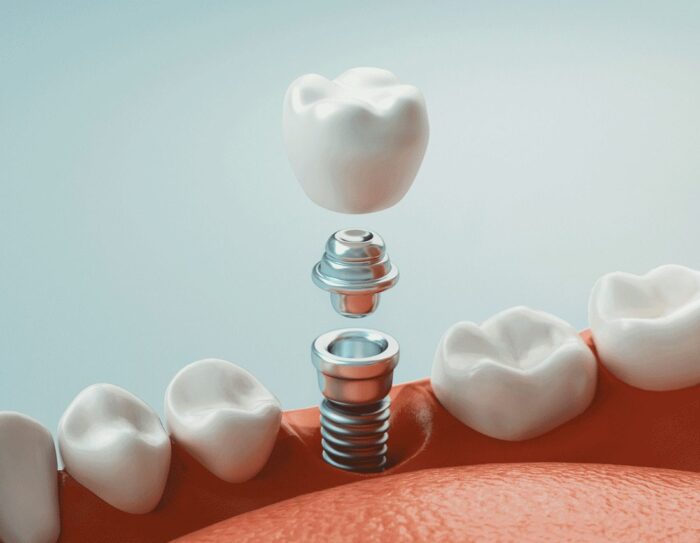Among the many options for missing teeth, dental implants stand out among the rest. Dental implants are a permanent option to replace your missing teeth. Unlike other replacement options, dental implants last a lifetime. Although the process is more invasive, dental implants are worth the time and recovery. Many patients prefer dental implants over dental bridges because of their durability and ease of maintenance.

Why Should You Fix Missing Teeth?
No one really plans to lose their teeth, but it happens to many people. In fact, nearly 178 million adults in the US have at least one missing tooth, according to the American College of Prosthodontists. This means that it is likely that you may have to face the decision of choosing a tooth replacement. If the decision is overwhelming, you may think that not choosing a replacement is a sufficient solution.
Unfortunately, no replacement is not a beneficial choice. Your teeth need the support of all your other teeth to stay in place. This means that if you lose one tooth, your other teeth will loosen and shift. Not only will this mean bad news for your bite pattern, but it will also mean that you can lose more teeth. People with missing teeth are more likely to develop malocclusions or lose more teeth. In addition, because your teeth don’t have the pressure from a full set of teeth, they can possibly shift and fall out.
This is why you need a tooth replacement option.
Benefits of Dental Implants
Dental implants are excellent tooth replacements. Because your dentist must surgically implant them, dental implants are permanent. Additionally, dental implants won’t shift or fall out like dentures.
Although the process may be lengthy and invasive, dental implants become a permanent part of your mouth. This means that they look and feel like your natural teeth. As a result, you won’t have to change your diet or oral care routine.
Dental implants help support your teeth and bones. This means that you won’t damage your remaining teeth or your bones. With dental bridges, your dentist must remove enamel from the supporting teeth to place the crown portion of the bridge. When using dentures, wearing them too much can cause sores and deterioration of your bones.
Dental Implant Process
After your dentist has approved you as a candidate for dental implants, you will begin the process. The first step is a thorough physical exam and x-rays. This allows your dental team to have a full understanding of your oral health and develop a plan.
Next, you will undergo surgery for the first portion of the dental implant—the post. The post is the titanium prosthetic tooth root. The other portions of the dental implant will affix to this section. Before you can move on to the next step, your jaw must heal completely. Your recovery can take several weeks.
Then, you will get the abutment, which is the piece that will eventually hold the dental crown. But, again, you must fully recover before you can get the final piece—the dental crown.
